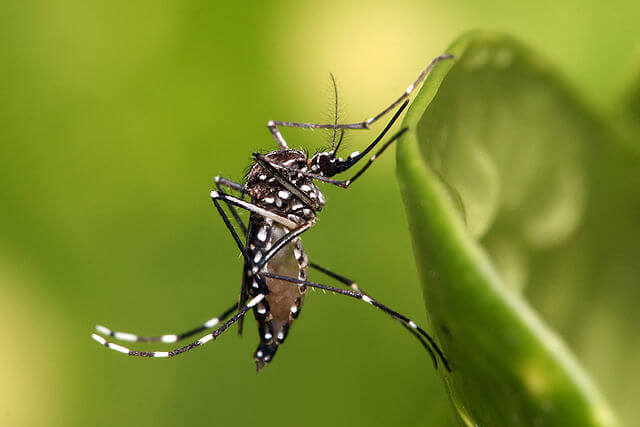
The UK Health Security Agency (UKHSA) has issued a warning that parts of the UK could be at risk of hosting mosquitoes capable of transmitting diseases like dengue fever, chikungunya, and the Zika virus by the 2040s and 2050s.
This alarming scenario is presented in a report outlining the potential health impacts of climate change, particularly if global emissions and temperatures rise significantly.
The report, based on a worst-case scenario with a projected 4°C temperature increase by 2100, underscores the urgent need for action.
The findings, compiled by 90 experts, amalgamate the existing evidence of the current health implications of climate change. The report projects potential outcomes based on a plausible worst-case scenario that could unfold if international commitments to combat climate change are not effectively fulfilled. Current estimates from the United Nations Environment Programme indicate a trajectory towards a 2.7°C warming by 2100, but uncertainties persist.
Prof Nigel Arnell, professor of climate change at the University of Reading, says: “Whilst we clearly hope temperatures won’t get that far, it is prudent to prepare for the worst case when planning health resources, if the consequences of us underestimating the risk are so significant.”
A primary health concern outlined in the report is the increased suitability of the UK for invasive species like the Asian tiger mosquito (Aedes albopictus).
Should high emissions and temperatures persist, London may witness regular cases of dengue fever by 2060, with the virus making inroads into England first and subsequently affecting Wales, Northern Ireland, and parts of the Scottish Lowlands later in the century.
The UKHSA emphasises the need for expanded surveillance systems, including traps detecting mosquito eggs at borders, to promptly identify invasive species.
The report underscores the irreversible nature of the establishment of such mosquitoes once they arrive in the UK.
Slower warming, though likely to delay risks, cannot entirely mitigate the consequences. In the worst-case scenario, up to 10,000 excess deaths per year due to extreme heat are anticipated by the 2050s, along with other severe impacts on health, agriculture, and mental well-being. The unequal distribution of these impacts, disproportionately affecting vulnerable populations, is a significant concern.
The UKHSA suggests targeted interventions and adaptations to mitigate risks. Recommendations include the implementation of national heat and cold alert systems, the expansion of green spaces, improvement of flood defences, and measures to protect vulnerable populations, such as enhancing energy efficiency in care homes.
The report emphasises the potential benefits of proactive measures and emphasises that many risks can be averted with swift and effective action.
——————————————————————————
At Natural World Fund, we are passionate about stopping the decline in our wildlife.
The decline in our wildlife is shocking and frightening. Without much more support, many of the animals we know and love will continue in their decline towards extinction.
When you help to restore a patch of degraded land through rewilding to forests, meadows, or wetlands, you have a massive impact on the biodiversity at a local level. You give animals a home and food that they otherwise would not have had, and it has a positive snowball effect on the food chain.
We are convinced that this is much better for the UK than growing lots of fast-growing coniferous trees, solely to remove carbon, that don’t actually help our animals to thrive.
This is why we stand for restoring nature in the UK through responsible rewilding. For us, it is the right thing to do. Let’s do what’s right for nature!
Donate today at https://naturalworldfund.com/ and join in the solution!

